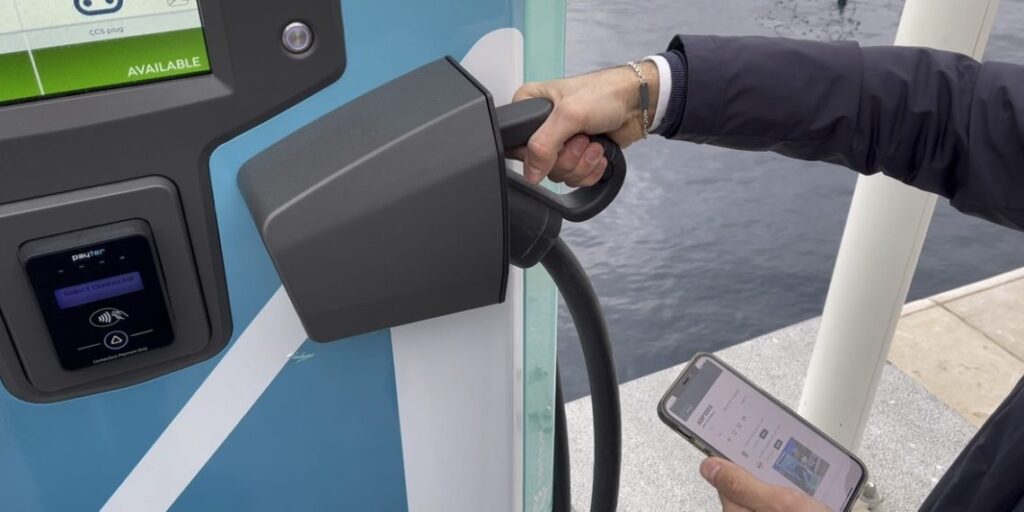
GLOBAL. Aqua SuperPower and BlueGrid Launch First Transatlantic Vessel-to-Grid Project for Marine Electrification
British marine charge point operator Aqua SuperPower and Canadian marine V2G software provider BlueGrid have unveiled the first transatlantic vessel-to-grid (V2G) project for marine electrification. This £1.8 million ($2.3 million) initiative aims to connect teams from the UK and Canada to develop and deploy bi-directional chargers and electric vessels in Plymouth, UK, and Halifax, Canada.
The collaboration seeks to validate the technology across different climates, demonstrating the bi-directional energy flow to and from vessel batteries, and highlighting their capacity to enhance energy security and perform key energy services.
In addition to hardware validation, the project emphasizes software integration, focusing on communication protocols to ensure interoperability between vessels, chargers, grids, and software management systems.
Adam Marshall, Chief Technology Officer at Aqua SuperPower, expressed his excitement about the project:
“Winning our second Innovate UK grant for vessel-to-grid technology highlights our leadership in marine electrification. We're thrilled to lead the UK consortium and collaborate with our Canadian partners on this groundbreaking transatlantic project, showcasing the potential of bi-directional boat charging in different energy markets and environments.”
Funded through the Innovate UK R&D programme, the project aims to stimulate the development and implementation of innovative ocean technologies. This initiative marks a significant milestone in marine electrification, following Aqua SuperPower's earlier efforts in 2022. The company, backed by British government funding, began planning the world's first demonstrator for electric boats with bidirectional chargers in Plymouth. Aqua SuperPower provided the charging stations, while consortium partner Indra contributed the core bi-directional charging technology.
The transatlantic V2G project is set to prove the viability of bi-directional boat charging technology in diverse energy markets and environments, paving the way for broader adoption and enhanced energy security in marine electrification.